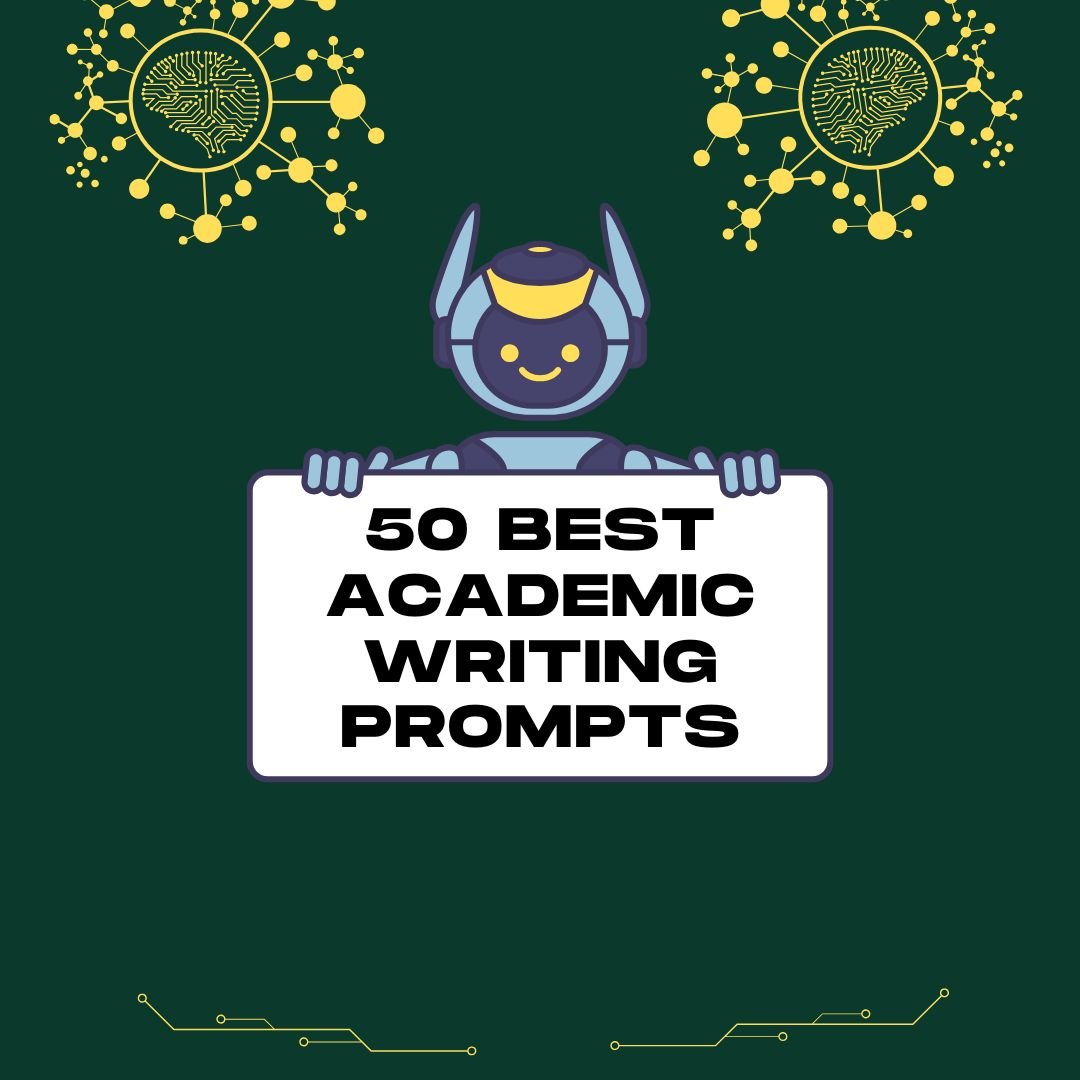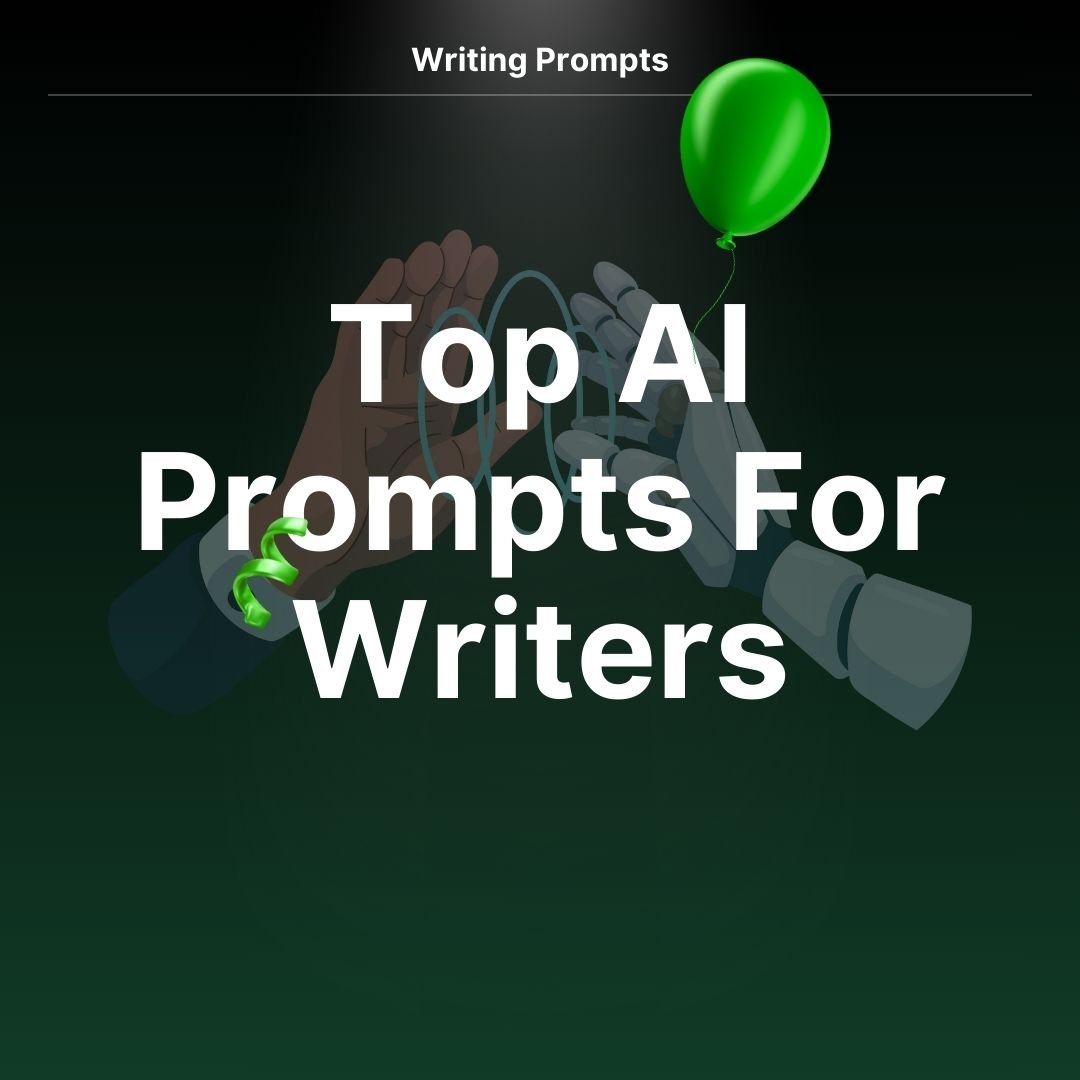Academic writing can be daunting, especially for beginners navigating the complexities of research, structure, and clarity. Fortunately, tools like ChatGPT have made it easier to brainstorm, refine ideas, and create well-structured content. While it’s important to approach AI tools ethically and with caution, they can serve as valuable assistants in the writing process. In this article, we’ll explore the best academic writing prompts you can use to improve your research, refine your writing, and streamline your academic workflow. Brainstorming Research Topics Starting with a blank page is often the hardest part of academic writing. ChatGPT can assist by generating ideas for research topics tailored to your field. Use prompts like: “Suggest 5 potential research topics for a PhD in [your area of interest].” This provides a starting point for exploration. While AI-generated topics may need refinement, they can inspire unique ideas that you can develop further by consulting academic sources like PubMed or Scopus. Refining Titles and Subheadings An engaging and precise title is crucial for academic work. If you feel your title lacks impact, ChatGPT can help refine it. Try prompts such as: “Improve this title to make it more appealing to a scientific audience: [your title].” By requesting options tailored for conferences, journals, or general readability, you can select the best fit for your purpose. For added creativity, ask for multiple suggestions and iterate based on feedback. Extracting Keywords Keywords play a vital role in making your work discoverable and accessible. If you’re struggling to summarize a lengthy paragraph or abstract into concise keywords, ChatGPT can help. Use prompts like: “Extract 5 keywords from this abstract: [insert abstract].” This ensures you include relevant and precise terms that enhance the visibility of your academic work in search engines and databases. Generating Essay Outlines Crafting an essay outline is a great way to break down complex ideas into manageable sections. ChatGPT can help streamline this process. For example: “Create an essay outline for the topic: [your topic].” This provides a framework for your writing, including introductions, body sections, and conclusions. It’s especially useful when you’re overwhelmed or unsure where to begin. Developing Thoughtful Arguments Building a compelling argument is central to academic writing. ChatGPT can assist by generating ideas for supporting points, counterarguments, and evidence. A helpful prompt could be: “List three arguments for and against [your topic].” This allows you to structure your writing in a balanced way while ensuring a thorough exploration of the subject matter. Paraphrasing Complex Sentences Academic writing often involves revising or simplifying dense language. ChatGPT can help rephrase complex sentences for clarity and readability. Use prompts like: “Simplify this sentence while retaining its meaning: [your sentence].” This ensures your work remains accessible without losing its academic rigor. Proofreading and Grammar Checks Editing is a crucial step in academic writing. ChatGPT can act as a basic proofreading tool. For example: “Check this paragraph for grammatical errors and improve its readability: [insert text].” While not a substitute for professional editing, this can help catch obvious errors and improve flow. Drafting Summaries and Abstracts Summarizing your work effectively is essential for abstracts and introductions. ChatGPT can help by condensing long passages into concise summaries. Try prompts like: “Summarize this paragraph into 2–3 sentences: [insert paragraph].” This makes it easier to communicate key ideas clearly and concisely. Enhancing Clarity in Arguments Clarity is key in academic writing. If a section feels overly complicated or wordy, ChatGPT can help simplify it. Use prompts like: “Rewrite this argument to make it clearer and more direct: [insert text].” This can be particularly useful for improving the readability of technical or dense content. Ethical Use of AI in Academic Writing While ChatGPT offers immense value, it’s important to use it ethically. Remember that ChatGPT-generated citations may be inaccurate or fabricated. Always cross-check any references provided and rely on verified academic sources for your research. Use AI as a tool to assist, not replace, your own critical thinking and originality. 50 Academic writing Prompts Prompt 1: Refining for Clarity and Specificity Assume the role of a senior academic editor. Analyze the following thesis statement provided by a student: “[INITIAL THESIS STATEMENT].” Critique the statement for clarity and specificity, identifying areas where it lacks focus or precision. Rewrite the thesis statement to ensure it provides a clear, concise, and specific roadmap for the paper, explicitly stating the central argument and the scope of the research. Provide an explanation of why the revised version is more effective. Prompt 2: Strengthening Argumentative Depth As an experienced academic writing coach, your task is to evaluate the student’s thesis statement: “[INITIAL THESIS STATEMENT].” Focus on its argumentative strength—determine whether the statement presents a clear and debatable stance. Suggest revisions to make the thesis more compelling by highlighting key research questions, addressing counterarguments, and emphasizing its contribution to the academic field. Include a brief rationale for your suggestions. Prompt 3: Incorporating Research Questions and Implications Imagine you are an academic advisor mentoring a student on developing their research paper. Review the following thesis statement: “[INITIAL THESIS STATEMENT].” Identify whether it effectively incorporates research questions and outlines potential implications. Revise the thesis statement to introduce relevant research questions, clearly articulate the central claim, and hint at the broader significance of the research. Offer constructive feedback on how the revised version strengthens the overall direction of the paper. Prompt 4: Ensuring Conciseness and Focus You are a professor guiding students on crafting effective thesis statements. Evaluate the provided thesis: “[INITIAL THESIS STATEMENT].” Assess its conciseness and focus, and identify any unnecessary details or ambiguities. Rewrite the thesis to remove redundancy, sharpen its focus, and enhance its alignment with the central argument of the paper. Provide a brief explanation of your revisions to demonstrate how they improve the thesis. Prompt 5: Enhancing Debatability and Academic Rigor Step into the role of a peer reviewer for an academic journal. Review the thesis statement: “[INITIAL THESIS STATEMENT].” Analyze its potential for sparking debate and its alignment with academic rigor. Suggest ways to refine
Artificial intelligence has revolutionized the way we approach writing, offering creative professionals and content creators tools to enhance their workflow. Among the numerous advancements, AI prompts stand out as a powerful feature to elevate writing quality and streamline processes. In this article, we’ll dive into the top AI prompts for writers, showcasing how tools like ChatGPT can help you craft compelling narratives, improve tone, and maintain consistency across projects. How AI Writing Prompts Transform the Writing Process AI-powered writing tools, such as ChatGPT, are designed to mimic human conversation while analyzing and adapting to your unique writing style. With the latest advancements, including memory capabilities, these tools can learn and store your preferences, making future interactions more personalized and effective. Whether you’re crafting blogs, email copy, or even scripts, these prompts can save you time, reduce cognitive load, and improve the overall quality of your work. Here’s how you can harness AI prompts to supercharge your writing process: Step 1: Analyzing Your Writing Style One of the most powerful ways to improve your AI writing experience is by teaching the tool to understand your writing style. This involves providing a sample of your work or selecting a reference piece whose tone and structure you’d like to emulate. Writing Prompt Example “Analyze the following text and provide a breakdown of its tone, voice, sentence structure, vocabulary, and overall flow. Summarize the key elements that define the style, including its complexity, conversational tone, and pacing.” Once this step is complete, the AI will offer a detailed breakdown of your writing style, covering aspects like: This detailed analysis ensures that the AI adapts to your preferences, creating an output that reflects your unique style. Step 2: Enhancing Writing Through Memory With the latest ChatGPT memory feature, you can take the process a step further. This feature allows the AI to retain information about your style, preferences, and even frequently used phrases, making future interactions seamless. Why Memory Matters Previously, every interaction with an AI tool required re-establishing context. Now, with memory capabilities, you only need to input these preferences once. This is especially beneficial for writers who work across multiple projects and want to maintain a consistent tone and style. Example Use Case:A blogger who writes both casual lifestyle content and professional guides can teach the AI to distinguish between these styles. By doing so, they eliminate the need to constantly adjust prompts for each project. Step 3: Using Writing Prompts to Elevate Creativity AI prompts can be tailored to tackle a variety of writing challenges, from brainstorming fresh ideas to refining final drafts. Below are some of the most effective prompts for writers: Brainstorming Ideas “Generate 10 creative blog post ideas on [topic]. Make them unique, engaging, and relevant for a [specific audience, e.g., freelance writers or entrepreneurs].” Improving Writing Style “Rewrite the following paragraph to make it more concise while maintaining the original tone and message. Highlight areas of improvement.” Adopting a Specific Tone “Rewrite this text in a conversational, friendly tone that appeals to readers aged 18-35. Maintain clarity and engagement.” Content Structure Optimization “Organize the following points into a well-structured blog post with subheadings, ensuring the ideas flow logically from one to the next.” Practical Application: Real-Life Workflow with AI Writing Prompts Here’s a practical workflow to implement the steps mentioned above: For example, a writer can paste the transcript of a YouTube video or a blog into ChatGPT and request an analysis. Once the style is defined, prompts can help rewrite the content to match this tone, whether it’s casual, formal, or somewhere in between. Why AI Prompts Are a Game-Changer for Writers AI prompts provide writers with tools that go beyond basic automation. They allow you to: Prompts for writing articles Detailed Guides & Tutorials Analytical & Thoughtful Articles Reviews & Critiques Opinion Pieces Prompts for writing copy Headlines & Taglines Product Descriptions Opening & Closing Paragraphs Value Propositions & CTAs Announcements, Ad Copy & Emails Customer Testimonials & Web Copy Marketing Slogans & Creative Angles prompts for writing social media content Captions and Post Descriptions Platform-Specific Posts Creative & Humorous Posts Educational and Informative Content Seasonal & Special Occasion Posts YouTube & Video Content prompts for writing scripts General Video Scripts Creative Storytelling and Plotlines YouTube & Social Media Scripts Business and Marketing Scripts Podcast and Audio Scripts prompts for writing poems and stories Story-Writing Prompts Poem-Writing Prompts Conclusion Incorporating AI prompts into your writing workflow can significantly enhance productivity and creativity. By using tools like ChatGPT to analyze and adapt to your writing style, you can craft content that resonates with your audience while saving time and effort. Whether you’re a seasoned professional or a beginner, these top AI prompts for writers will ensure you stay ahead in the evolving world of content creation.

